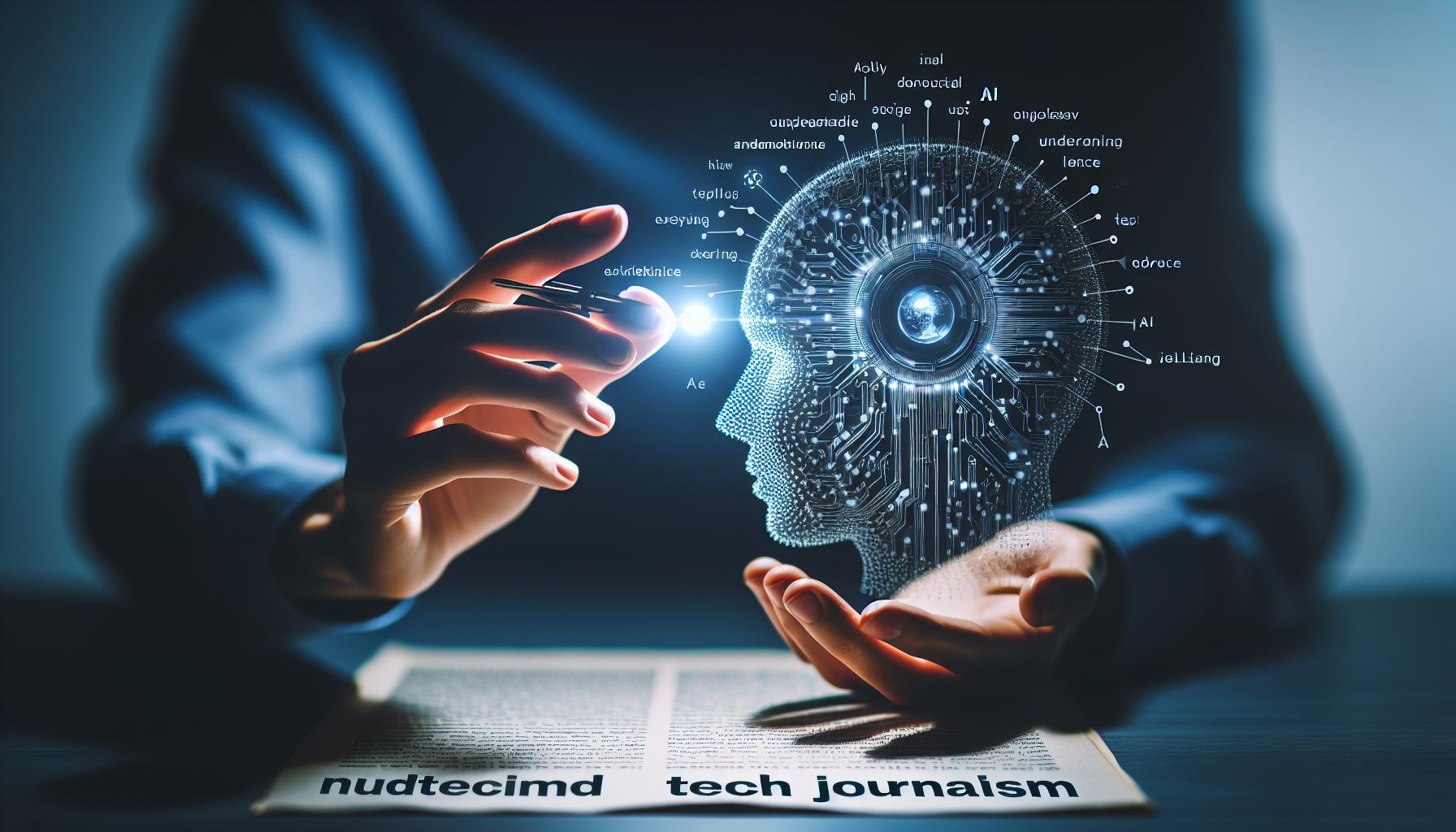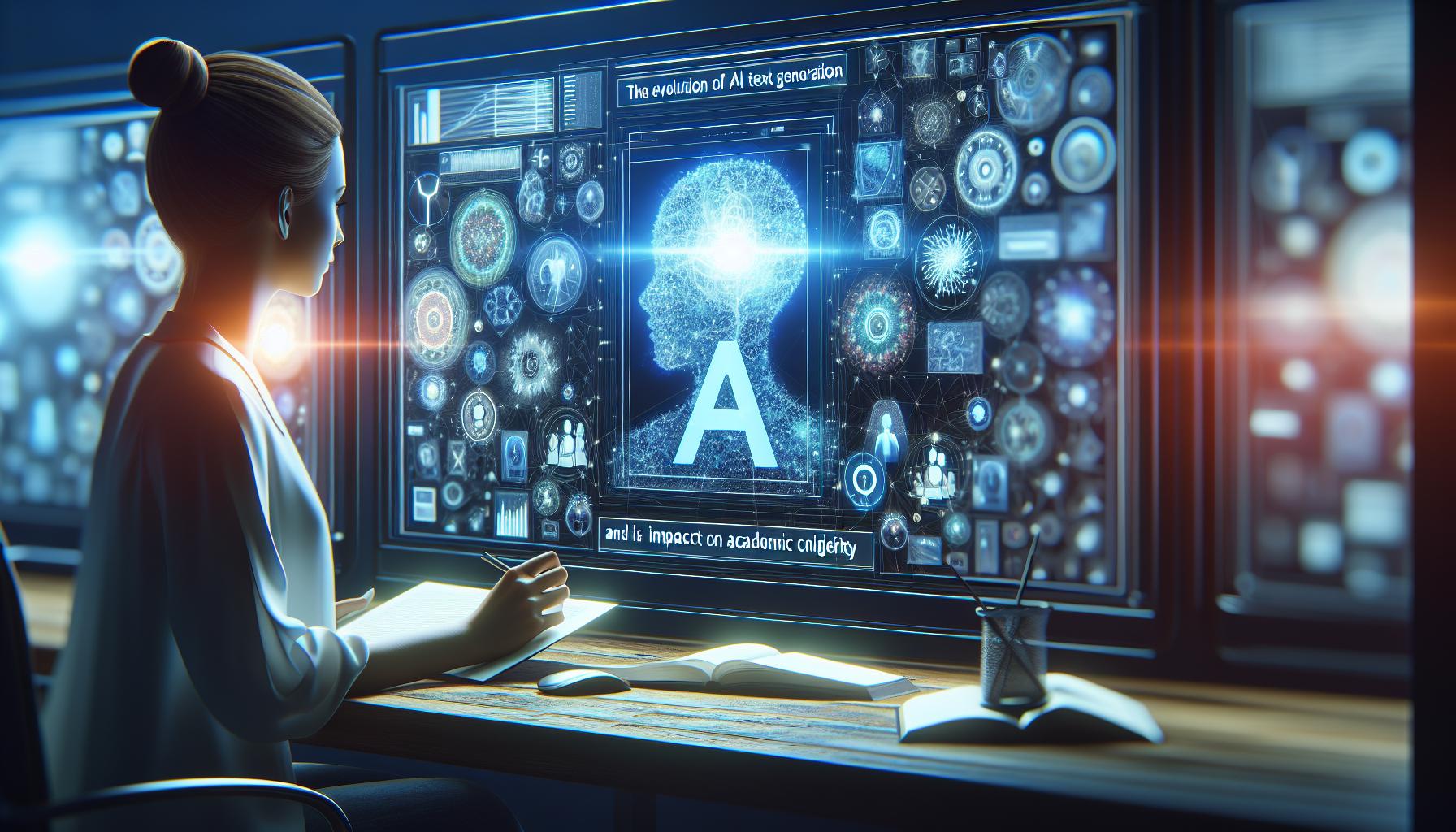As the college admissions landscape evolves, a pressing question emerges: can the Common Application effectively identify submissions crafted by AI tools like ChatGPT? Understanding this capability is crucial for applicants and institutions alike, as it directly influences academic integrity and the evaluation of genuine student potential in an increasingly digital age.
Understanding the Challenges of Detecting AI-Generated Text
The Evolving Landscape of AI Text detection
As the capabilities of AI-generated content evolve, so do the challenges associated with detecting it. Institutions like the Common App face the daunting task of distinguishing between human-written and AI-generated text. One important challenge is the increasingly sophisticated nature of AI language models, such as ChatGPT, which can produce text that mimics human nuances remarkably well. This creates a scenario where even advanced detectors struggle to maintain a high level of accuracy, leading to possible misinterpretations.
Accuracy and Reliability of detection Tools
The effectiveness of current AI detection tools varies widely.Tools like Originality.AI claim accuracy rates around 76%, which is commendable but still leaves room for error【1】. Others, like Grammarly and Scribbr, offer free detection services that can identify output from specific models, yet their effectiveness is not universally guaranteed【2】【3】. This inconsistency raises concerns among educators and admissions boards regarding the reliability of these tools as definitive measures of authenticity in student submissions.
- Detection Tool Variability: Different tools yield different results based on their algorithms and training data.
- False Positives: Human-written text can be incorrectly flagged as AI-generated if it exhibits certain patterns or lacks complexity.
- Evolving AI Models: As AI technology advances, detection tools must continuously adapt to new writing styles and structures.
Strategies for Improving Detection Effectiveness
To enhance the ability to detect AI-generated text, it is crucial for institutions to adopt a multi-faceted approach that includes not only advanced detection tools but also human oversight. Here are some actionable strategies:
| Strategy | Description |
|---|---|
| Training Educators | Provide educators with training to recognize signs of AI-generated content, helping them make informed judgments on submissions. |
| Implementing Hybrid Detection | Combine automated detection tools with peer reviews to cross-verify the authenticity of submissions. |
| Regularly Updating Tools | Keep detection software updated to include new algorithms that can adapt to the latest AI writing techniques. |
By recognizing the limitations of current methods and continuously evolving detection strategies, institutions can better navigate the complex terrain of AI-generated content, thereby ensuring academic integrity in the application process. Understanding these challenges is essential not only for the Common app but also for all stakeholders in the educational community.
How Common App Assesses Written Content
Many students applying to colleges wonder about the originality and authenticity of their written content, especially with the rise of AI tools like ChatGPT. The Common Application, a prevalent platform for college admissions, has implemented several measures to assess the work submitted by applicants, ensuring that it reflects their individual thoughts and experiences.
Understanding the Assessment Process
The Common App employs a combination of technology and human assessment to evaluate written content. It focuses on several key factors that can definitely help determine whether an essay or personal statement is genuinely reflective of the applicant:
- Writing Style: Unique voice and style are critical components. The assessment process evaluates the consistency in the tone and vocabulary choices used throughout the application.
- Content Relevance: Essays that tell a personal story or provide detailed insights into the applicant’s experiences tend to be favored. Generic content that lacks personal connection raises red flags.
- Use of Language: The use of sophisticated vocabulary and complex sentence structures must still align with the applicant’s academic background.A sudden shift to advanced language may signal assistance from AI tools.
Technological Safeguards in Place
While the Common App doesn’t publicly disclose the specific algorithms or programs used to detect AI-generated texts, it employs prevalent technological methods found in many plagiarism detection software.These measures include comparing submitted essays to a vast database of written works, looking for similarities in phrasing, structure, and even thematic elements.
| Assessment Criteria | Indicators of Authenticity |
|---|---|
| Writing Style | Consistent use of tone and vocabulary unique to the applicant. |
| Content Relevance | Specific personal anecdotes and reflections that resonate. |
| Language Use | Appropriate level of complexity matching the applicant’s educational context. |
Practical Tips for Authentic Writing
To ensure that one’s application essays stand out and appear authentic to evaluators, consider the following suggestions:
- Be Genuine: Reflect on personal experiences, challenges, and achievements. Authenticity resonates well in admissions essays.
- Seek Feedback: Share drafts with trusted advisors or peers for constructive criticism. This feedback can help clarify your voice and ensure originality.
- Avoid Clichés: strive for originality in your expressions and themes. overused phrases might detract from the uniqueness of your personal narrative.
regardless of the technological advancements that may arise, the Common App’s commitment to recognizing authentic, personal storytelling remains paramount. By focusing on genuine reflection of experiences and employing effective writing techniques, applicants can create compelling essays that withstand scrutiny, ensuring their voices shine through amidst the noise of automated tools.
The Role of Natural Language Processing in differentiating AI from Human Writing
The Distinction Between AI-Generated and Human Writing
As artificial intelligence (AI) continues to evolve, the ability to differentiate between human writing and AI-generated content is becoming increasingly vital. Natural Language Processing (NLP) plays a pivotal role in this discernment.By analyzing patterns, structures, and nuances in language, NLP can evaluate the authenticity of a piece of writing, making it an invaluable tool for institutions seeking to identify AI-generated submissions. The ability of systems like the Common App to detect AI-written content hinges on these advanced NLP techniques.
Understanding the Mechanics of NLP in Content Detection
NLP encompasses a variety of techniques that help in understanding and interpreting language in a human-like manner. These techniques include syntactic analysis, semantic understanding, and context evaluation, all of which can highlight discrepancies indicative of AI-generated text. When assessing submissions, algorithms may examine:
- Sentence Structure: AI tends to produce content with a consistent structure that may lack the variability typical of human writing.
- Word Choice: AI-generated text can frequently enough display a limited vocabulary or overly formal language, as it draws from a pre-defined dataset.
- Context Handling: unlike humans, who can infuse personal experiences and emotions, AI-generated content may miss subtleties, failing to connect deeply with the reader.
Real-World Applications and Challenges
Despite its capabilities, NLP is not foolproof. The ongoing evolution of AI language models, such as ChatGPT, poses significant challenges to detection systems. With each iteration, AI becomes better at mimicking human writing styles, leading to potential misidentifications. Such as, if an applicant’s essay is particularly polished, it may be flagged as AI-generated when it is, in fact, a product of careful human effort. Consequently, as organizations like the Common App advance their detection methodologies, they must continuously refine their NLP tools to keep pace with improvements in AI technology.
Ultimately, harnessing NLP for distinguishing human writing from AI-generated content not only aids in maintaining the integrity of academic submissions but also encourages authentic self-expression among applicants. The ongoing discourse surrounding the question of “Can Common App Detect AI-Written Content like ChatGPT’s?” underscores the importance of this evolving technology in the landscape of education and beyond.
Ethical Implications of Using AI in College Applications
The increasing integration of artificial intelligence (AI) into the college application process raises important ethical questions that can no longer be ignored. as students look to enhance their essays and responses using tools like ChatGPT, institutions grapple with the implications of AI-generated content on the authenticity and integrity of applications. More than just a matter of compliance with guidelines, the ethical landscape surrounding the use of AI in college applications affects how we perceive the values of honesty, effort, and individuality within the admissions process.
the Dilemma of Authenticity
One of the primary concerns regarding AI assistance in college essays is the potential degradation of authenticity. When applicants utilize AI tools to craft responses, the risk emerges that their personal voice and unique experiences might potentially be overshadowed by generic or formulaic content. This leads to a critical question: Can Common App detect AI-written content like ChatGPT’s? While technological advancements aim to flag non-original submissions, the challenge persists. Institutions need to balance innovation with the necessity of personal narrative, as admissions officers often seek to understand how applicants think, reflect, and express their identities.
Fairness and Accessibility
There is also a significant debate surrounding fairness in the admissions process. Students who have greater access to advanced technology or better knowledge about AI tools may inadvertently receive an advantage in presenting their applications. This disparity raises concerns about equitable opportunities among applicants from diverse socioeconomic backgrounds. If AI becomes a prevalent tool in crafting college essays, colleges must ensure that the playing field remains level to prevent any biases that could arise simply from unequal access to technology.
To structure a fair framework,colleges could consider the following approaches:
- Transparent Guidelines: Establish clear policies regarding the use of AI that all applicants can understand.
- Educational Programs: Offer workshops that educate students on how to enhance their writing while maintaining authenticity.
- Review Processes: Develop a robust review process that assesses how well applicants’ writing reflects their personal insights and experiences.
Potential Solutions and Responsibilities
to navigate these ethical implications, all stakeholders involved in the college admissions process must take proactive measures. Colleges could implement systems to differentiate between AI-assisted and genuine content,while also fostering discussions about the role of AI in education. Moreover, students must educate themselves about the repercussions of relying heavily on AI to craft their narratives. They should strive for balance, harmonizing AI’s efficiency with personal creativity and honest portrayal of their experiences.
As institutions evolve in their understanding of technology’s role within the admissions framework, addressing concerns about ethical implications will be key to maintaining the integrity of college applications. It’s imperative that any discussion around Can Common App Detect AI-written Content Like ChatGPT’s? serves not only to assess its capabilities but also to inspire a pledge to uphold the authenticity and individuality that should always characterize student applications.
Tips for Crafting Authentic Application Essays in an AI-Dominated Era
The rise of AI tools like ChatGPT has brought a wave of conversion to the college application process, particularly in drafting application essays. However, relying heavily on automated writing can risk the authenticity that admissions officers often crave. With tools capable of generating coherent text in seconds, crafting a genuine and reflective essay that resonates with your personal journey becomes more crucial than ever.
understand the Importance of Authenticity
Admissions committees are skilled in identifying authentic voices. an essay that feels impersonal or overly polished can raise red flags. This is especially vital in light of rising concerns about whether the Common App can detect AI-generated content. By prioritizing genuine expression over technical perfection, applicants can showcase their unique experiences and perspectives.
- Reflect on Personal experiences: Consider significant life events that have shaped your identity,values,and aspirations.
- Write in Your Voice: Use a tone and style that feel natural to you—whether that’s conversational, formal, or humorous.
- Seek Genuine Feedback: Share your drafts with trusted friends or mentors who can provide constructive criticism from a personal viewpoint.
Leverage AI as a Tool, Not a Crutch
While AI writing assistance can provide inspiration or help refine ideas, it’s imperative to maintain personal ownership of the content. Use these tools to brainstorm or enhance specific sections, but ensure that the narrative remains distinctly yours. An effective approach may involve:
- Creating an Outline: Start with a solid framework based on your story—this will guide your writing process and keep it organized.
- Employing AI for Idea Generation: Use chatbots for brainstorming topics or exploring different angles on your experiences.
- Editing and Refining: Once generated, use AI suggestions for grammar or style, but make sure to infuse your own insights and emotions back into the piece.
Ensure Adherence to Guidelines
With the evolving landscape of application processes, it’s essential to stay updated with the Common App’s policies surrounding AI-generated content. Institutions may express varying stances on the use of AI in essay writing, and adhering to their guidelines will not only protect your integrity but also bolster your candidacy.
| Institution | AI policy |
|---|---|
| University A | Encourages personal storytelling; AI tools acceptable for brainstorming. |
| University B | Strictly discourages use of AI in all essays. |
| University C | Neutral; evaluation based on authenticity and reflection. |
By harnessing the strengths of both personal reflection and technological aid, applicants can craft essays that are not only compelling but also true to their essence. In a landscape where questions such as “Can Common App Detect AI-Written content Like ChatGPT’s?” are increasingly relevant, maintaining authenticity should always remain the priority in the essay-writing journey.
The Evolution of AI Text Generation and its Impact on Academic Integrity
The rise of advanced AI technologies has transformed the landscape of content creation, allowing machines to generate human-like text with unprecedented accuracy. As these systems, such as ChatGPT, continue to evolve, questions surrounding their impact on academic integrity become critical. Can institutions like the Common App effectively identify applications or submissions authored by AI? Understanding the evolution of AI text generation is essential to addressing these concerns.
the Transformative Power of AI
Historically, text generation started with simple algorithms that followed predefined rules, producing content that lacked the fluidity and coherence of human writing. However, with the advent of machine learning and deep neural networks, AI has made enormous strides. Modern models can analyze vast datasets and grasp context,tone,and structure,enabling them to compose essays,reports,and even creative writing pieces with startling sophistication.
In educational contexts, this advancement raises critical issues, such as:
- Erosion of Original Thought: students may rely on AI to produce work that lacks personal insight.
- Detection Challenges: As AI-generated text becomes more indistinguishable from human writing,customary plagiarism detection methods may fall short.
- Ethical Dilemmas: The use of AI tools in academic environments raises questions about honesty and fairness.
Detection Mechanisms and Academic Integrity
With these challenges in mind, organizations like the Common App are exploring technologies to detect AI-generated content. Current methods involve advanced algorithms trained to recognize linguistic patterns typical of machine-generated text. While the capability to discern AI-generated submissions is growing, the pursuit of accuracy remains difficult due to the natural evolution of language used by both machines and humans.
| AI Detection Method | Description | Pros | Cons |
|---|---|---|---|
| Pattern Recognition | Analyzes sentence structure and word choice for AI-like features. | Can catch obvious AI text. | May misclassify well-written human text. |
| Machine Learning Models | Trained on large datasets of both human and AI writing. | Improved accuracy over time. | Requires continuous updates and training. |
| Concatenated Analysis | Compares writings over time to detect inconsistencies. | Reveals sudden shifts in quality or style. | May not detect subtle changes. |
Ultimately,as AI text generation technology continues to advance,so too must the methods employed to ensure academic integrity.Educational institutions must remain vigilant, adapting their strategies to counteract the potential misuse of AI tools. Continuous education about ethical writing practices and the nature of AI will empower students to utilize such technologies responsibly, reinforcing the value of original thought and innovation in their academic pursuits.
Are Admission Officers Recognizing AI Patterns? Insights and Observations
Understanding the Scrutiny of Admission Essays
In an era where technology continuously reshapes education, the integration of artificial intelligence (AI) into academic applications is a hot topic of discussion. Admission officers are increasingly aware of the ways students might employ tools like ChatGPT to enhance their essays. The question arises: are admission officers equipped to recognize AI-generated content? insight into this matter reveals a fascinating intersection of ethics, technology, and education.
Currently, many universities are training their admission teams to develop a finely tuned eye for distinguishing between genuine human expression and AI-generated narratives. While some may argue that AI tools can enhance writing, others see the potential for misuse, where students might present essays lacking authenticity. As an inevitable result, admission officers are not solely relying on automated tools to detect AI patterns; rather, they are honing their analytical skills to spot inconsistencies and unusual writing styles that may indicate AI assistance.
Recognizing AI Patterns: The Role of Admission Officers
The growing concern about AI’s influence on admission essays is prompting a proactive approach in admissions offices. Here are some insights and observations regarding how admissions officers are adapting:
- Patterns in consistency: AI writing may often exhibit a certain consistency in tone and structure that can seem atypical for individual students’ diverse writing experiences.
- Unusual Vocabulary Usage: AI-generated content can sometimes feature sophisticated vocabulary that doesn’t align with the student’s overall academic record, leading to scrutiny.
- Lack of Personal Voice: Admission officers value personal stories and unique perspectives; AI might inadvertently produce generic responses that lack authenticity.
- Emphasis on Authenticity: Many schools advocate for authentic essays, reminding applicants that their personal experiences and reflections are paramount.
Moreover,institutions are investing in training admissions personnel to become more familiar with textual analysis techniques. While AI detection tools are available, nothing beats a seasoned professional’s intuition and experience.
| Indicators of AI-Written content | Consequences for Applicants |
|---|---|
| Unnatural flow or structure | Possible rejections for falling short of authenticity |
| Overuse of complex vocabulary | Questions about true writing skills |
| Generic responses lacking personality | Loss of personal touch, leading to diminished appeal |
| Mismatch with academic history | Red flags raised during evaluation |
as modernization continues to challenge traditional practices, it’s clear that the evolution of AI in education necessitates a reassessment of ethics and methodology. By understanding how admission officers discern the subtle signs of AI involvement in essays, students can be encouraged to embrace their unique voice while engaging thoughtfully with technology. This balance could serve as a critical factor in crafting compelling and authentic college applications.
The Future of Application Reviews: Balancing Technology and Human Insight
The role of Technology in Application Reviews
The explosion of innovative technologies such as AI has sparked widespread discussions about its impact on application reviews.As institutions increasingly depend on digital tools to sift through vast amounts of applicant data, a critical tension emerges between the efficiency of automated systems and the nuanced understanding that only human reviewers can provide. In the context of questions like “Can Common App Detect AI-Written Content Like chatgpt’s?”, it’s essential to evaluate how these technologies will shape the future of admissions processes.
Machine Learning and Detection Systems
Advanced machine learning algorithms can analyze writing patterns and vocabulary usage with remarkable precision. Here are some capabilities of these systems:
- Pattern Recognition: Identifying stylistic markers that may indicate AI authorship.
- Sentiment Analysis: Assessing the emotional tone of personal statements to ensure authenticity.
- Plagiarism Detection: Comparing submitted content against a vast database to spot similarities with known works.
While such tools can enhance efficiency, they often lack the context needed to understand the multifaceted narratives behind an applicant’s journey. This is where human insight plays a vital role. Admission officers bring empathy, intuition, and a thorough understanding of their institution’s values—elements that are crucial for recognizing genuine passion, resilience, and growth that may not surface in a standardized assessment.
Balancing technology and Human Judgement
To effectively balance the strengths of technology with human insight in the application review process, institutions are leaning towards hybrid models that integrate both approaches. This strategy not only leverages efficiency in initial screenings but also preserves the essential human touch in final evaluations.
Hybrid Review Models:
Experimentation with hybrid models may include:
| Technology Role | Human Role |
|---|---|
| Initial Content Analysis | Final Decision Reviews |
| Data Compilation and Organization | Contextual Interpretation and Story Assessment |
| Highlighting Key Metrics | Engaging with Candidates and Their Stories |
in addition to utilizing AI-based metrics and screening tools, admissions teams must refine training programs for evaluators.Fostering skills in recognizing AI-generated content—paired with a robust understanding of diverse applicants—will prepare them for future challenges. Institutions could also encourage collaborative discussions about the ethical implications of using AI in admissions, fostering a culture of integrity that prioritizes authenticity in applicants’ narratives.
Ultimately, as the discourse around questions like “can Common App Detect AI-Written Content like ChatGPT’s?” unfolds, it’s imperative for institutions to approach technology as a complement to human judgment rather than a replacement. By weaving together the analytical power of AI with the irreplaceable value of personal insight, the future of application reviews can uphold fairness, inclusivity, and a deeper understanding of each student’s unique story.
Preparing for the Next Wave of AI Detection Tools in Admissions
Anticipating the Future of AI Detection in College Admissions
As the landscape of college admissions evolves, so too does the technology fueling changes in applicant assessment. With the rise of sophisticated AI writing tools like ChatGPT, educational institutions face pressing questions about academic integrity and originality. The potential of AI-generated content to influence admissions decisions makes it imperative for colleges to invest in effective detection mechanisms. This includes not only employing advanced AI detection tools but also fostering a culture of authenticity among applicants.
To successfully navigate this changing terrain, admissions offices should consider implementing the following strategies:
- Integrating AI Detection Tools: Utilize reliable AI detection solutions to screen submissions for authentic authorship. Platforms such as Grammarly’s AI detector and other emerging services can assist in identifying content generated by AI models [[3](https://www.grammarly.com/ai-detector)].
- Developing Clear Guidelines: Establish transparent policies regarding the use of AI tools in creating application materials. This helps set expectations for prospective students while promoting honesty and integrity.
- Conducting Training Sessions: Educate admissions personnel on recognizing characteristics of AI-generated text, enhancing their ability to critically evaluate submissions beyond mere software checks.
- Encouraging Reflective Writing: Implement prompts that encourage applicants to share personal stories and insights, as these are more challenging for AI to replicate convincingly. This not only fosters originality but also provides a richer insight into the applicant’s character.
The Role of Emerging Technologies
With AI tools continually evolving, institutions must remain adaptable.continuous investment in new detection technologies and methodologies will be crucial in maintaining the integrity of the admissions process. By fostering partnerships with tech developers, colleges can keep pace with innovations, ensuring they are equipped to identify AI-generated content effectively.
incorporating real-world applications can enhance technological integration. As a notable exmaple, schools might create sample datasets of known AI-generated content to improve learning algorithms in their detection tools.This proactive approach ensures that admissions tools remain robust and reliable.
| AI Detection Tool | Features | Best For |
|---|---|---|
| AI Detector by NoteGPT | Free analysis of AI models, no signup required | Academic integrity checks |
| Grammarly AI Checker | Clear scoring system, citation assistance | Content verification |
| cybernews Best Tools | Comparative analysis of various AI detectors | Thorough options evaluation |
As admissions practices adapt to the capabilities of AI, the ability to discern legitimate writing from AI-generated content will be paramount. Emphasizing integrity, originality, and transparency in the admissions process will not only enhance the quality of applicants but also fortify the institution’s reputation in academic excellence.
to sum up
the integration of AI technologies like ChatGPT in the writing process raises significant questions about originality and authenticity within educational assessments, particularly concerning the Common App.As we’ve explored, advanced detection algorithms are becoming increasingly adept at identifying patterns and linguistic structures typical of AI-generated content. Though,the challenge remains—how will these systems evolve to distinguish between human creativity and machine assistance?
Understanding the nuances of AI in this context not only enlightens students about the implications of their writing choices but also encourages institutions to refine their evaluation processes. As we anticipate further developments in AI detection capabilities, it’s crucial for both applicants and educators to consider the ethical ramifications of AI use and the importance of fostering genuine self-expression.
Now, we encourage you to delve deeper into this evolving dialog around AI, education, and integrity. Explore the interplay between technology and authenticity, and consider how you can leverage these tools responsibly. The future of writing in academia is not merely about detection but about enhancing learning and personal growth—an exploration well worth embarking on.












